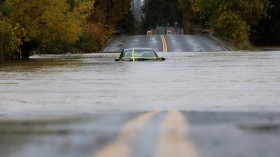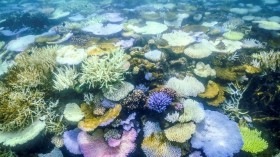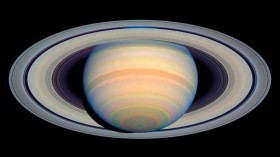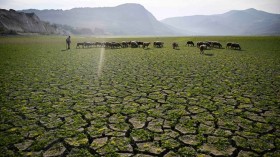Massive amounts of glacier melt and freshwater are pouring into the Gulf of Alaska, which may not seem like a big deal, but new research shows that this runoff can potentially have a drastic impact on both marine life to global sea level.
The collective freshwater discharge of this region is more than four times greater than the mighty Yukon River of Alaska and Canada, and half again as much as the Mississippi River. While scientists had indeed noticed this runoff, until now they had no idea the magnitude of its impact.
If all this mountain rain, snow and glacial ice melt empties into the Gulf of Alaska, it would create the sixth largest coastal river in the world if it emerged as a single stream, researchers say.
"Freshwater runoff of this magnitude can influence marine biology, nearshore oceanographic studies of temperature and salinity, ocean currents, sea level and other issues," lead author David Hill, from Oregon State University, said in a statement.
"This is an area of considerable interest, with its many retreating glaciers," Hill added, "and with this data as a baseline we'll now be able to better monitor how it changes in the future."
The research team used satellite technology as well as on-the-ground hydraulic measurements and modeling to produce the most precise measurements of freshwater runoff in this region to date. Between 2003 and 2009, when this research took place, they found that from melting glaciers alone, about 57 cubic kilometers of water a year pours into the Gulf of Alaska. And that's on top of the estimated 792 cubic kilometers produced by annual precipitation in this region.
At this rate, the Gulf of Alaska accumulates more water than is seen in some of the world's great rivers, including the Ganges, Nile, Volga, Niger, Columbia, Danube or Yellow River.
However, the study does not predict future trends in runoff, the researchers note. While a warmer climate at first would predictably speed the retreat of existing glaciers, at some point the amount of water produced may decrease as the glaciers dwindle or disappear. Whether or not all this freshwater will negatively impact marine life and global sea levels in the future, remains to be seen.
The results were published in the Journal of Geophysical Research: Oceans.
For more great nature science stories and general news, please visit our sister site, Headlines and Global News (HNGN).
© 2024 NatureWorldNews.com All rights reserved. Do not reproduce without permission.





